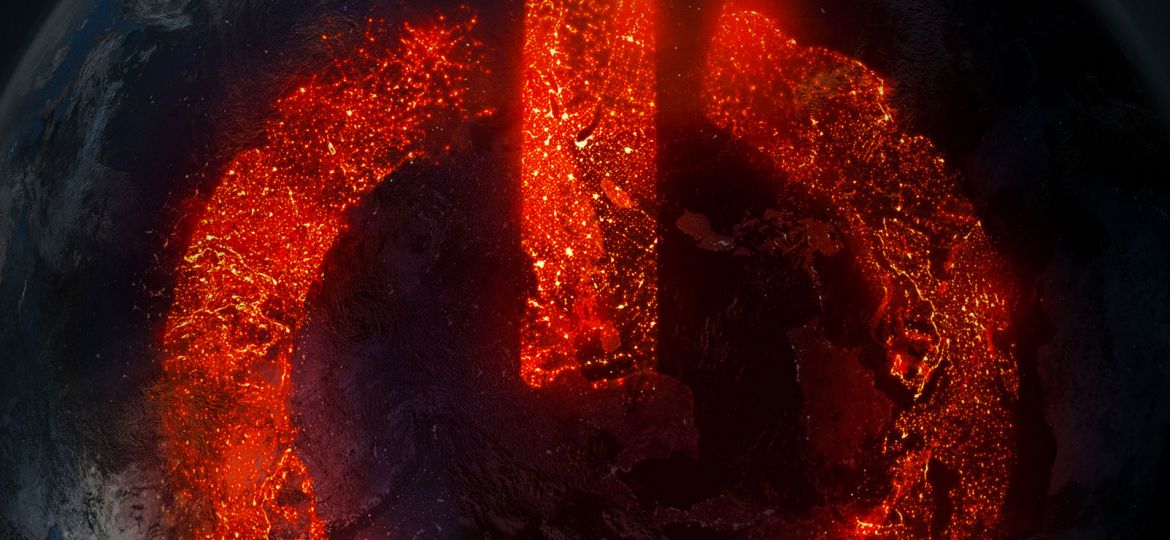
WHY THIS MATTERS IN BRIEF
As artificial intelligence improves in capability it is inevitable that it will eventually be weaponised, humans need to be aware of the risks and we must work together to mitigate them.
The internet is about to become a vicious, chaotic battlefield, and Elon Musk says advanced artificial intelligence (AI) could make the carnage even worse. According to a short exchange on Musk’s Twitter today, the systems that keep the internet running are particularly vulnerable to simple, brute force computing attacks – the kind of cyber warfare that AI excels at.
On October 21, an unknown group of hackers bought parts of the internet in the US and Europe to its knees using a massive Distributed Denial of Service (DDoS) attack. The hackers used a massive “botnet” – connected computers able to perform coordinated functions — of simple Internet of Things devices to relentlessly overload the servers at Dyn, which provides DNS services to a huge number of websites including Spotify, Twitter, Netflix, and Reddit. For the most part, cybersecurity authorities believe that a human being or group of people orchestrated and executed the attack, plugging in the botnet’s targets and making sure their digital blows landed, but in the future Musk says massive DDoS attacks mightn’t need human hackers to wreak havoc on the infrastructure that keeps us all online. And I’d agree – after all, we’ve already seen the rise of AI “Robo-Hackers” as well as AI’s that can spawn more AI’s and even AI’s that are able to hide their communications and activities from humans and other AI’s.
So, AI’s taking down the internet isn’t inconceivable. That said though we humans still have a few tricks up our sleeves to prevent that from happening, such as our ability to use blockchain to eliminate some of the internet’s single point of failures, for example, the centralised DNS servers – like Dyn – by using it to create a distributed DNS system, or, alternatively by flicking one of Google’s AI kill switches.
Only a matter of time before advanced AI is used to do this. Internet is particularly susceptible to a gradient descent algo. https://t.co/a6AdF7o7AZ
— Elon Musk (@elonmusk) November 3, 2016
Here’s where Elon Musks leap comes in – from now to “then”. Right now, almost all cyber attacks like the ones hackers use on a regular basis to take down websites are usually orchestrated by people. But as AI gets better and better, Musk says hackers will start using it to optimize their attacks on the internet infrastructure, which is “particularly susceptible” to something called a “gradient descent algorithm.” A gradient descent algorithm, is a mathematical process that takes a complex function and finds the most optimal solution, and AIs are getting really, really good at doing gradient descents, which would allow them to take a complex process like, say, launching a massive DDoS attack with a huge network of poorly secured Internet of Things connected devices and streamline it, optimising their digital weaponry to carry out the most devastating attack possible. And that’s not all – if both sides are armed with similarly capable AI’s, which one day they will be then it could lead to AI versus AI shutdowns on the AI battlefield of the future.
Musk is one of the highest profile members of the tech elite to speak out openly against the unregulated advancement of AI which is why he put over a billion dollars into OpenAI, an open source AI company whose mission is to use AI for good – not evil. He’s not against the technology as a whole, but thinks that attempts to make smarter robots and systems should be open and transparent, to keep out profit focused corporate influences that could lead to an AI takeover. Musk, like many other experts, sees computer sentience as an inevitability, but wants to make sure the human race is taking every precaution to keep itself on the same level as our machines. Part of that includes something called the neural lace, which would merge and augment human brains with AI processing power, thereby allowing technology and evolution to stay on par.
@ClintonKeith good chance
— Elon Musk (@elonmusk) November 3, 2016
But until then, Musk sees AI as a loaded gun. Right now, hackers’ offensive weapons, like DDoS attacks, have surpassed many of the traditional online defenses used to keep the internet safe and running. While the neural lace and the spectre of a true AI apocalypse are both a long way off, advanced AI’s dominance of the internet is not.
















